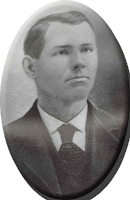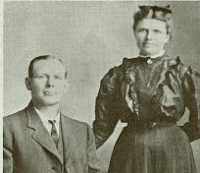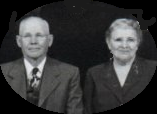Papa’s Music
 Singing these praise lyrics brings me joy and I yearn for our Lord God: God of wonders beyond our galaxy You are Holy, Holy, The universe declares your Majesty, And you are holy, holy. The God of Details of my life and The God Who created this earth.
Singing these praise lyrics brings me joy and I yearn for our Lord God: God of wonders beyond our galaxy You are Holy, Holy, The universe declares your Majesty, And you are holy, holy. The God of Details of my life and The God Who created this earth.
When I was a child, I watched my Mom holding a flower, studying it. I asked why, it was just a flower to me. Mom taught me and continues to teach me through her words and her writing to see the details of the flowers, the songs of the birds, the shapes of rocks, the greens of trees and the gathering storm clouds to see Our Lord. As I determined what to write today, I was drawn to re-read from Mom’s book, now out of print, “The Lines are Fallen“. This book is the story of her family. My granddaughter recently twittered, “Music music music music music…..” She will know as she reads this blog why her life is created and defined with a song when she reads this blog.
Here is Anna Daisy’s story about her dear Papa: “Do, re, mi, fa, sol, la, ti, do” is not a part of the Greek alphabet but a musical scale used to build melodies. Julie Andrews, using a progression of these notes arranged by Richard Rogers, flung the beloved, “Do – Re – Mi” from The Sound of Music against the European sky. She won the heart of America. Her well-trained voice was surrounded with sweeping violins and other instruments to achieve her success. However, our Papa climbed his Alps alone except for a tiny instrument of steel — a tuning fork. Papa carried his tuning fork in his vest pocket. For each song the fork was lightly struck against wood or a hymnal to vibrate its long tines. His ear caught the A. From that one note, Papa could pitch any key correctly. Music surrounded Papa as he grew up. Grandfather taught music and all his children knew how to read notes, sing, and harmonize. Of all my uncles, only Uncle Henry went beyond the single tuning fork. Instead of children (they adopted one daughter) he had instruments: organ, piano, violin, mandolin, accordion, concertina, banjo, guitar, and harmonicas. He play ed them all. After Grandfather Suderman died of cancer, Papa was chosen to lead church music and direct the choir. He farmed for a living, but his joy was music. Learning new songs meant reliance on his inbred knowledge of music and the tuning fork. Choir music was not in the church budget. Often one copy of music sufficed if Papa used the “Vorsang” (fore-singing) method. He sang one phrase and the choir repeated it. Phrase by phrase the song was taught. Monotonous? Perhaps, but the melody was firmly embedded and the theme made its impact through repetition. Harmony was easily added. If the melody was known, Papa only quoted the words. In this speaking-singing dialogue the old German chorales became favorites to touch the hearts of worshipers. Nothing would ever take their place for those who sang them often. Each Sunday morning Papa dressed early; then, with hymnal in hand, he selected songs for the morning worship. If, however, the minister said, “Brother Suderman, could we sing another song?” Papa never hesitated. It was always “Zwei-und-siebzig.” Number 72 was “In the Sweet By and By” – Papa’s favorite.
ed them all. After Grandfather Suderman died of cancer, Papa was chosen to lead church music and direct the choir. He farmed for a living, but his joy was music. Learning new songs meant reliance on his inbred knowledge of music and the tuning fork. Choir music was not in the church budget. Often one copy of music sufficed if Papa used the “Vorsang” (fore-singing) method. He sang one phrase and the choir repeated it. Phrase by phrase the song was taught. Monotonous? Perhaps, but the melody was firmly embedded and the theme made its impact through repetition. Harmony was easily added. If the melody was known, Papa only quoted the words. In this speaking-singing dialogue the old German chorales became favorites to touch the hearts of worshipers. Nothing would ever take their place for those who sang them often. Each Sunday morning Papa dressed early; then, with hymnal in hand, he selected songs for the morning worship. If, however, the minister said, “Brother Suderman, could we sing another song?” Papa never hesitated. It was always “Zwei-und-siebzig.” Number 72 was “In the Sweet By and By” – Papa’s favorite.
Music was not only for church. We sang at home and Papa closed every day with an evening song. Whatever we did — a checker game, school lessons, hand work — whenever Pap began “Mud bin Ich, geh’ zur Ruh’,” we knew our day was over. We sang with him and evening prayers followed the song. I often played this evening song, but I never saw the music. When I finally found the song in Jubeltone, I noticed Pap’s melody had veered from the original song. I asked my sister Irene about it. “O yes,” she answered, “my brother-in-law told me, ‘ Your father often changed the melodies to suit himself.’ But I think Papa’s melody is better than the original, don’t you?” Yes, I do, however, the words have not been changed in this lovely evening prayer: Wearied now, I seek my rest. Close my eyes in slumber blest; Father, let Thy loving eye, O’er me like a cover lie…….If perhaps I’ve sinned today, Lord, forgive my sinful way; For Thy grace and Jesus’ blood, Cleanse all sins beneath the flood….All my loved ones in this land, Let them rest within Thy hand; Every person, young and old, Shelter safely in Thy fold…..Restless hearts, Lord, give them peace, Close wet eyes so tears will cease; Let a full moon shining bright Watch Thy sleeping world tonight.
After Papa’s hand accident (a cross-saw cut), he took a course in directing music from Dr. Schmutz at Tabor College. Those practice sessions of arm-waving arcs and figures delighted and entertained us for hours. His direction was always precise and graceful. Papa’s favorite position during these sessions was leaning against the wall in a kitchen chair. With hymnal in hand and tuning fork read, he found the right key and “do, re, mied” his way through soprano, alto tenor and bass. Then he announced to the world at large, “Now this is a good song!” How could he tell by singing one part at a time? The day Papa’s chair slid out from under him, we howled with laughter, but he did not think it was funny. We tried to wipe our laughter from our faces in a hurry.
Papa never condoned frivolous things, but music was a necessity. He traded a horse and cow for a new Kimball piano. Lessons began. He spent hours behind me counting his accurate “Eins, Zwei, Drei, Vier” (1, 2, 3, 4) into my ear. When my piano teacher offered me a prize if I could learn “Rock of Ages” correctly in one week. Papa doubled his effort. I had to count with him. I still have “Roses Without Thorns” by Gustave Lang to prove my success. Or, was it Papa’s?
Voice lessons were provided for Alma, Eli and Bernice. Irene and I had piano, but Jonas would rather go fishing. After I could play hymns, our Sunday afternoons were spent around the piano. We sang until I was deafened by the ring of voices bout me. Often Papa’s hand was on my shoulder patting out the time. I gave me an enduring sense of rhythm.
In those days, music publishing houses sent out sheaves of new anthems to choir directors. Papa received these packages several times a year. After I could sight-read well enough, Papa said, “Why don’t you play through these and select the best songs for our choir.” After supper or on rainy days, we checked them together. Those were times of pure joy.
My desire was to play for Papa’s choir but he said, “No, you sing until you are sixteen. Then you may play for me.” I chafed when he separated me from my cousin Louise in the alto section. “You and Louise are good altos but you must help Blanche. She will stand between you.” When I complained about the quality of her sing, Papa said, “Hold it! She is one of my best choir members. She’s never late, always there, and never complains about anything.” I sang with Blanche until I was sixteen (1925).
Papa’s crippled hand only bothered him in winter’s cold and at music festival time. Grandma Loewen took care of the first problem, but no one had a solution for the times all area churches gathered to hear the choirs sing. Papa’s pride kept his crippled hand in his pocket while the right hand directed music and flipped his pages. Papa’s hard work and many prayers resulted in a good choir. One day Mama met Professor Rupp, my last piano teacher, in the store. She told Mama, “I’ll be at Ebenfeld Sunday for the music festival. I wouldn’t miss Mr. Suderman’s good choir.” Mama fairly bristled with pride.
While we were at our dinner table the Sunday before Christmas in 1924, we heard the company telephone ring. Many short rings was an S.O.S. call. Everyone listened. I sat closest to the telephone and received this message: “The church is on fire!” I repeated the words and Papa ran. By the time Alma and I found our coats, Papa was halfway there. We ran after him…praying and crying. Smoke billowed from every crevice of that old building. Without water or a fire department the whole building was soon engulfed in flames — visible for miles. We looked for Papa. Where was he? Finally, he emerged from the basement door– coughing and sputtering from smoke inhalation. All he brought out was one song book and a green class dividing curtain. His precious stacks of choir music were beyond reach. We all stopped short in our work of removing dishes when the large concert organ crashed into the basement. We cried. Papa had wanted an instrument for so long and now it was gone. With a fresh shower of flame the balcony thundered down and finally the roof gave way to burn itself out……….When winter shadows lengthened, only smoldering ashes in the basement were left. Someone lassoed the tottering tall chimney and it toppled its bricks to send ashes flying. Ebenfeld had no church house. How would we celebrate Christmas?
The Gnadenau church graciously allowed us to have our Christmas program in their building. Many offers came with help and the church men gathered to plan and decided to construct a rough “tabernacle” where we could meet until a new building was completed. I remember the straw-covered floor and the backless benches. A wooden frame, set in the middle to keep straw away, held a large heater that scorched those nearby and left the outer rim of worshipers freezing. I also remember a donated pump organ that droned one note continuously, regardless of the song I played.
As the new building rose, Papa bought new choir music. We worked hard to memorize songs for the dedication service. Not only was the music new, Papa insisted all girls wear white dresses. Yards and yards of white poplin were purchased at Uncle John Suderman’s store with narrow laced Peter Pan collars. These dresses featured a narrow panel down each side where flat pearly buttons marched down to the edge of the skirt — exactly ten inches from the floor. The Dedication Service began in the tabernacle and we marched in a solemn procession into our new building. A glorious day for Ebenfeld for now we had a sanctuary to worship God and a place for weddings and funerals. Papa also had a new piano for his music.
Victrolas were on the market before we were teenagers but Papa was not satisfied with the quality. When Edison came out with unbreakable records, Papa bought a machine. John Charles Thomas, Madame Shumann-Heink and other great musicians entered our home. We delighted in taking turns ‘cranking’ the phonograph before we set the needle down. When Madame Shumann-Heink came to our area, Papa drove 50 miles to Wichita for her concert. I did not realize the quality of music Papa chose for his choir until I selected music for my own choir. He loved the songs of the masters: Beethoven, Hayden, Stainer. The last song I played for Papa’s choir (1928) was Mozart’s “Gloria”……… A year later, Papa decided to retire from his choir work on his 55th birthday (1929). Why not let a younger man take over? The choir disagreed. They planned a birthday party complete with a candle-topped cake. They presented Papa with a gift and a touching speech….”We can’t sing without you.” Papa collected his second-wind and kept the choir going for another five years. The choir gave him mountain peaks in perfection; but also b rought him down to dungeons of despair at times. Sopranos get their feelings hurt discordant notes sneak in, and words are not clearly enunciated. Papa became literally ill at times. Mama was Papa’s balance wheel. She finished chores so he was free to sing. She consoled him when problems became unbearable. AND she chided him when he was dissatisfied with near perfection. Mama wore old clothes and remodeled ours so Papa had money for choir music. After Papa retired he sometimes complained about the quality of choir music. Mama always told him, “If you don’t like the music, keep your mind on the words. Did you realize how lovely they were?” …..Shortly before Papa’s ‘going-home’, Albert Karber (son-in-law) made a record of his singing voice. One side was “In the Sweet By and By” Even at seventy-five hears old, his voice rang out clear and true. Papa often complained about his voice lowering in range through the years and he frustrated choir tenors by jumping octaves.
rought him down to dungeons of despair at times. Sopranos get their feelings hurt discordant notes sneak in, and words are not clearly enunciated. Papa became literally ill at times. Mama was Papa’s balance wheel. She finished chores so he was free to sing. She consoled him when problems became unbearable. AND she chided him when he was dissatisfied with near perfection. Mama wore old clothes and remodeled ours so Papa had money for choir music. After Papa retired he sometimes complained about the quality of choir music. Mama always told him, “If you don’t like the music, keep your mind on the words. Did you realize how lovely they were?” …..Shortly before Papa’s ‘going-home’, Albert Karber (son-in-law) made a record of his singing voice. One side was “In the Sweet By and By” Even at seventy-five hears old, his voice rang out clear and true. Papa often complained about his voice lowering in range through the years and he frustrated choir tenors by jumping octaves.
And now, Papa sings with angels and saints of God…his voice soaring in joyous bell-like tones throughout eternity.

